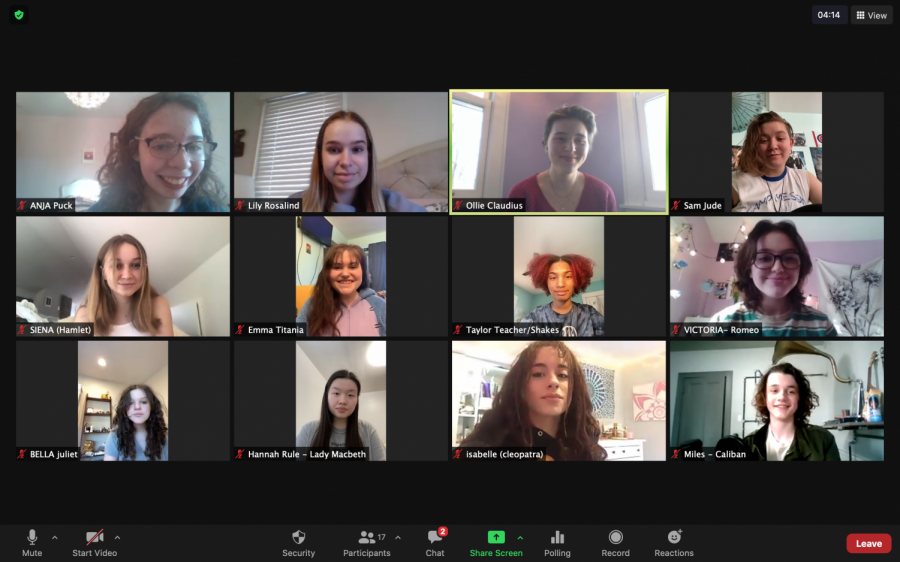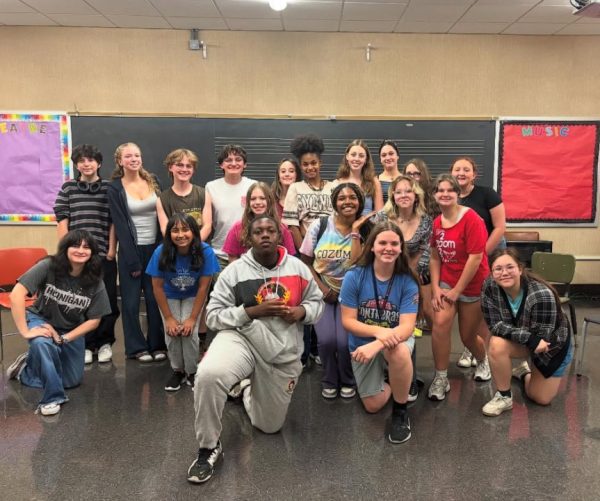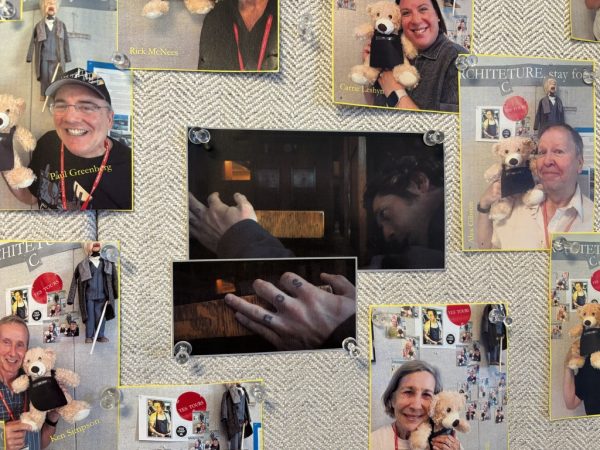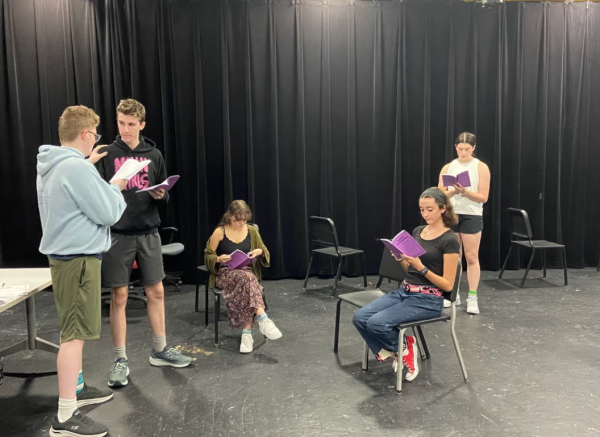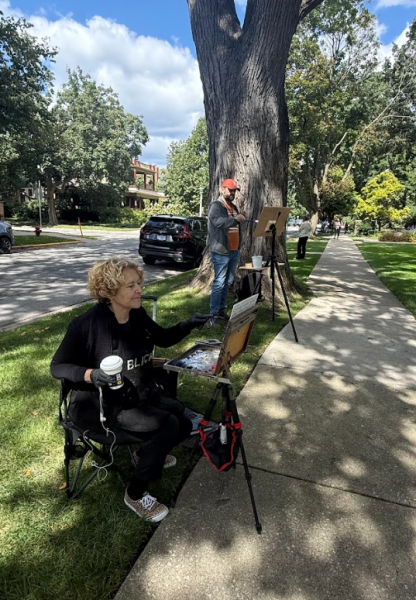Little Theatre modernizes Shakespeare
William Shakespeare is believed to have lived during the Elizabethan era, from the mid-sixteenth to the early seventeenth century. It’s hard to imagine him in a polarized society living through a pandemic where almost no one can be completely self-sufficient.
OPRF’s third quarter Little Theatre show does just that.
Fittingly, the show is called Devised Shakespeare.
“We want to steal language from Shakespeare,” Bell said. “We’ll take the lines and scenes from out of context and use them to tell the story we want to tell … we believe there is power in Shakespeare’s language, and getting to utilize that language will open those texts up to a new audience and let them see their modern world differently.”
Auditions were completely virtual, which affects the factors students must take into account while performing.
Much of the action while performing remotely is conveyed through words and facial expressions, which restricted the variety of acting styles present. For instance, some people convey emotion better through their bodies than through their face, Bell said.
Freshman Nyla Williams has experienced these challenges with virtual theatre, making her experience in the OPRF theatre department unique compared to her past experiences. Williams has been acting since she was six years old.
“I feel better acting when I’m actually able to connect with others,” Williams said. “It’s hard to be on the same page as everyone (with virtual performances), so when you’re doing something, someone else is doing a completely different thing.”
Despite the obstacles, senior Sam Theis sees virtual performances as “just another element” and enjoys the amount of details that the cast gets to work with.
“We as a cast and crew had to write the entire script together, including making our own plot and characters,” Theis said. “It was so much more in depth than other plays. Not only the production is our own, every part of it is.”
“It’s fantastic,” Theis said with regards to the completely student-run production.
Parts of the show will be broadcasted live via Zoom, and other parts will be pre-recorded. Even in this untraditional format, Bell hopes the show will still provide a memorable experience for the audience.
“Zoom fatigue is real,” Bell said. “We’re really working to provide something dynamic, that’s going to be a variety of different formats, so that we can maintain attention and keep people together.”
The show will air on March 5 and 6. Tickets are not yet available, although Bell hopes for sales to begin soon on a pay-what-you-can basis.

